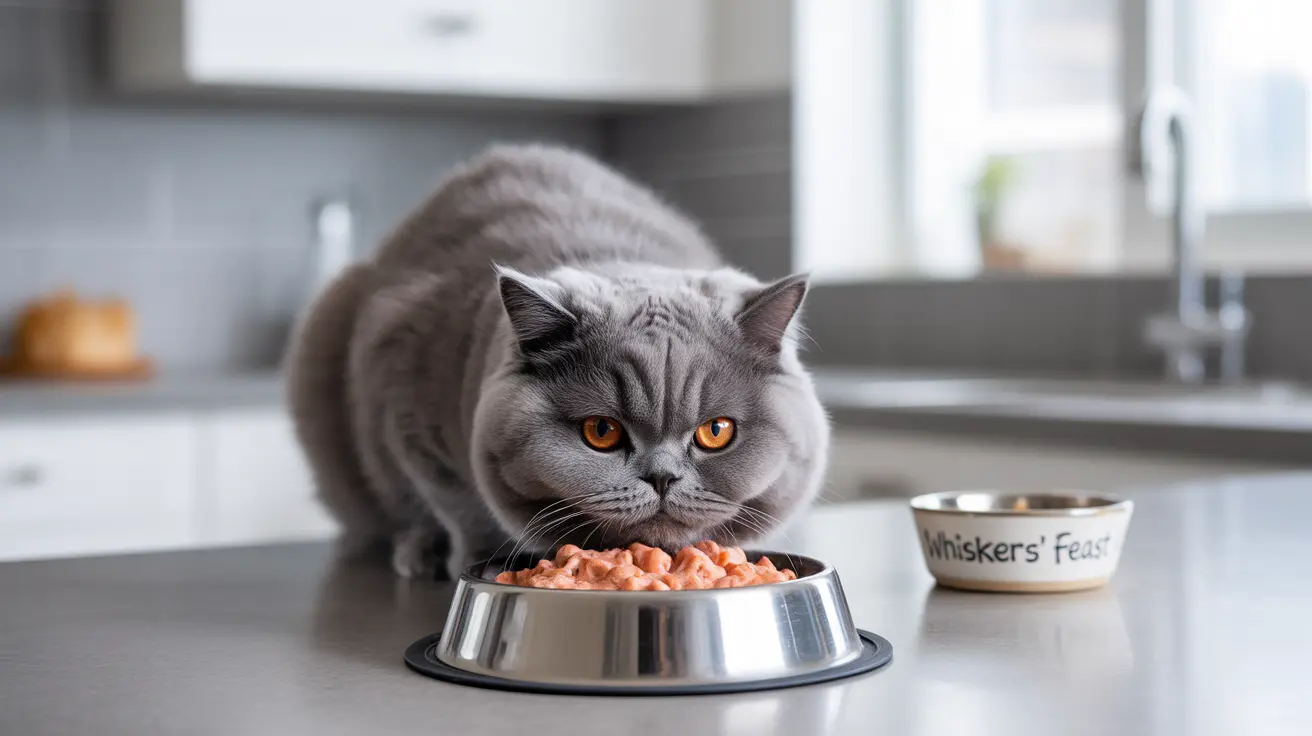As our feline friends age, maintaining a healthy weight becomes increasingly challenging. Many senior cats experience unintended weight loss due to various factors, from declining appetite to underlying health conditions. Understanding how to properly feed and nourish an aging cat is crucial for their health and longevity.
In this comprehensive guide, we'll explore the best nutritional strategies and food options to help your senior cat gain and maintain a healthy weight, while addressing common challenges that come with feeding older cats.
Understanding Weight Loss in Senior Cats
Weight loss in older cats often stems from multiple factors working together. Dental problems can make eating painful, while decreased senses of smell and taste might reduce food appeal. Medical conditions such as kidney disease, hyperthyroidism, or digestive issues can also contribute to weight loss, making it essential to address both nutritional and health aspects.
Key Nutritional Requirements for Senior Cats
Senior cats need specific nutritional components to support healthy weight gain. High-quality protein should make up at least 30-35% of their diet to maintain muscle mass and support overall health. Moderate amounts of healthy fats provide necessary calories and help with nutrient absorption.
Optimal Protein Sources
- Premium animal-based proteins
- Easy-to-digest meats like chicken, turkey, and fish
- Multiple protein sources for variety and complete nutrition
Best Food Options for Weight Gain
When selecting food for your senior cat, focus on nutrient-dense options that are both appetizing and easily digestible. High-quality wet foods often work well as they're more palatable and provide additional hydration.
Recommended Food Types
- Premium canned foods with high protein content
- Nutrient-dense dry kibble formulated for seniors
- Veterinary-approved weight gain formulas
- Kitten food (temporarily, with vet approval)
Feeding Strategies for Success
Implementing the right feeding strategy is just as important as choosing the right food. Small, frequent meals often work better than large portions, and warming food slightly can enhance its appeal to senior cats.
Practical Tips
- Serve 4-6 small meals throughout the day
- Warm food to room temperature
- Use elevated feeding dishes for comfort
- Create a quiet, stress-free feeding environment
Monitoring Progress and Health
Regular monitoring is essential when helping a senior cat gain weight. Keep track of their weight weekly and watch for changes in eating habits or behavior. Consult with your veterinarian if you notice any concerning changes or if weight gain isn't occurring despite dietary changes.
Frequently Asked Questions
What are the best types of senior cat food to help my cat gain weight safely?
Look for foods with high protein content (30-35%), moderate healthy fats, and quality ingredients. Premium wet foods and specially formulated senior cat foods are excellent choices. Avoid foods with excessive fillers or carbohydrates.
How can I encourage my senior cat to eat more and regain lost weight?
Warm food slightly to enhance aroma, offer small frequent meals, provide various textures and flavors, and ensure a calm feeding environment. Consider elevated dishes and easily accessible feeding locations for cats with mobility issues.
What nutritional ingredients should I look for in senior cat food for weight gain?
Focus on high-quality animal proteins, healthy fats, essential amino acids (especially taurine), and added vitamins and minerals. Look for foods with minimal fillers and appropriate calorie density for weight gain.
When should I consult a vet if my senior cat is losing weight despite feeding changes?
Consult a veterinarian immediately if your cat loses more than 10% of their body weight in a month, shows disinterest in food, or exhibits other concerning symptoms like lethargy, vomiting, or changes in drinking habits.
Can feeding kitten food or adding supplements help an older cat gain weight?
Yes, kitten food can be used temporarily for weight gain under veterinary supervision, as it's highly caloric and nutrient-dense. Supplements should only be added to your cat's diet after consulting with your veterinarian to ensure they're appropriate and safe.
Remember, helping your senior cat maintain a healthy weight requires patience, consistency, and careful attention to their individual needs. Always work with your veterinarian to develop the most appropriate feeding plan for your aging feline companion.






